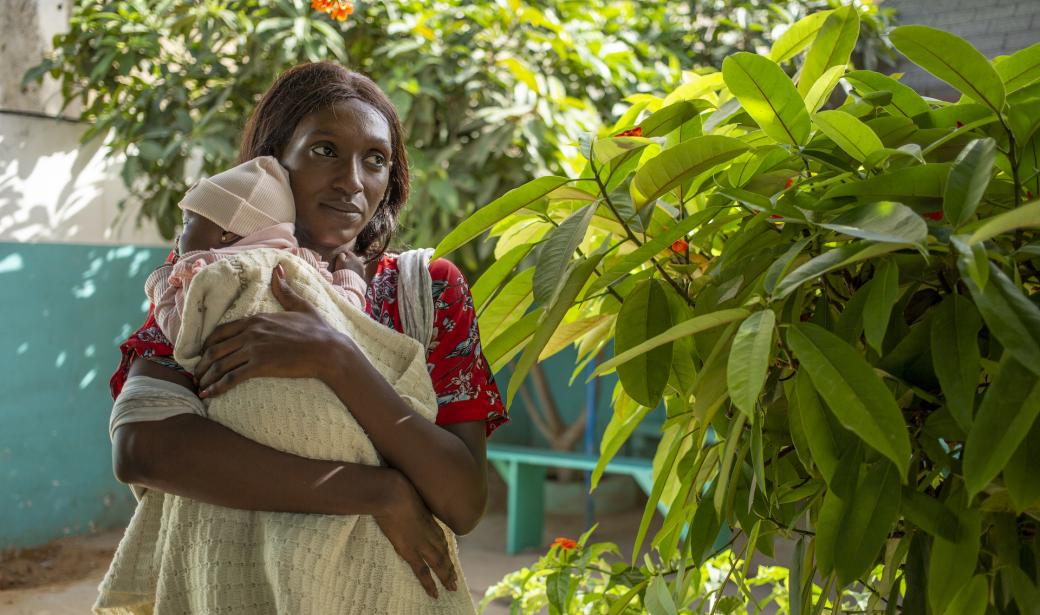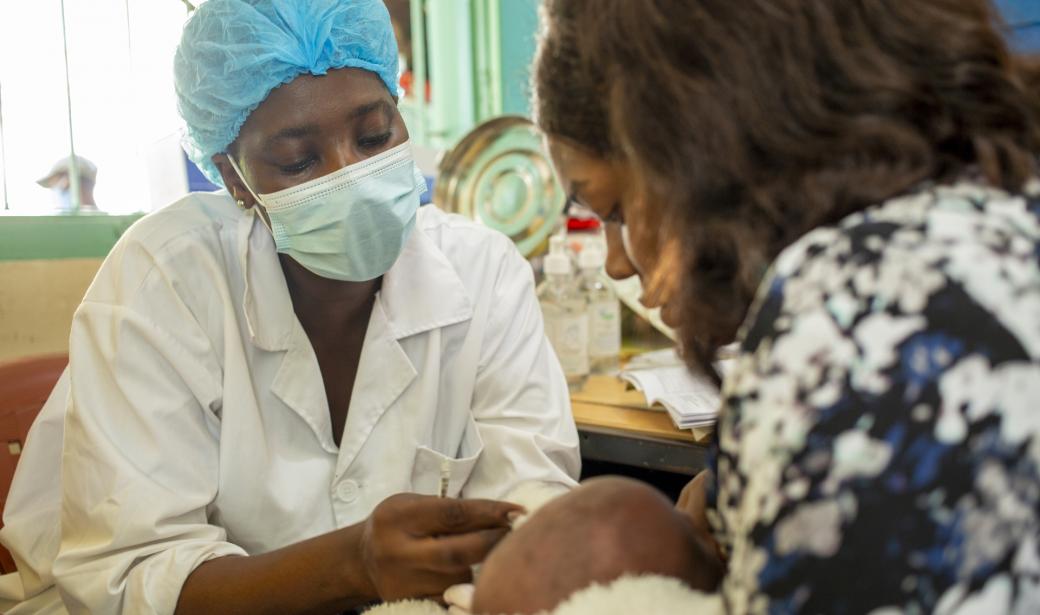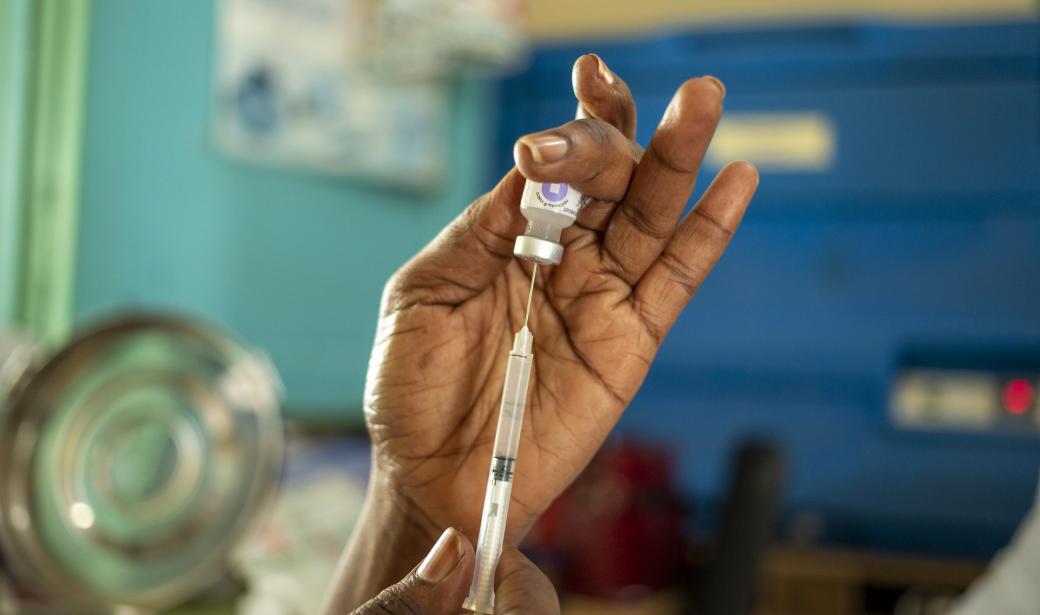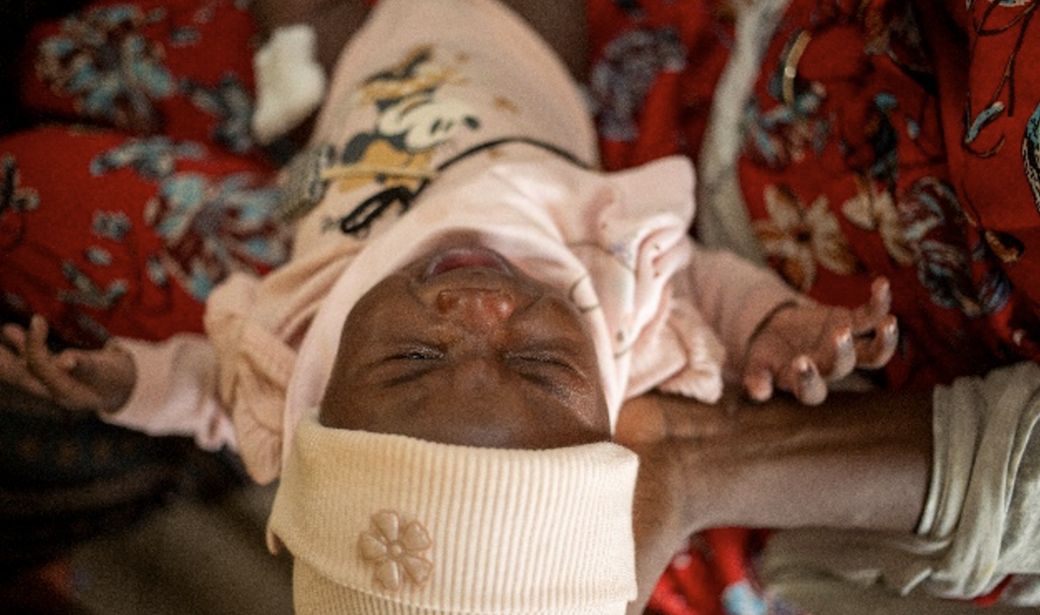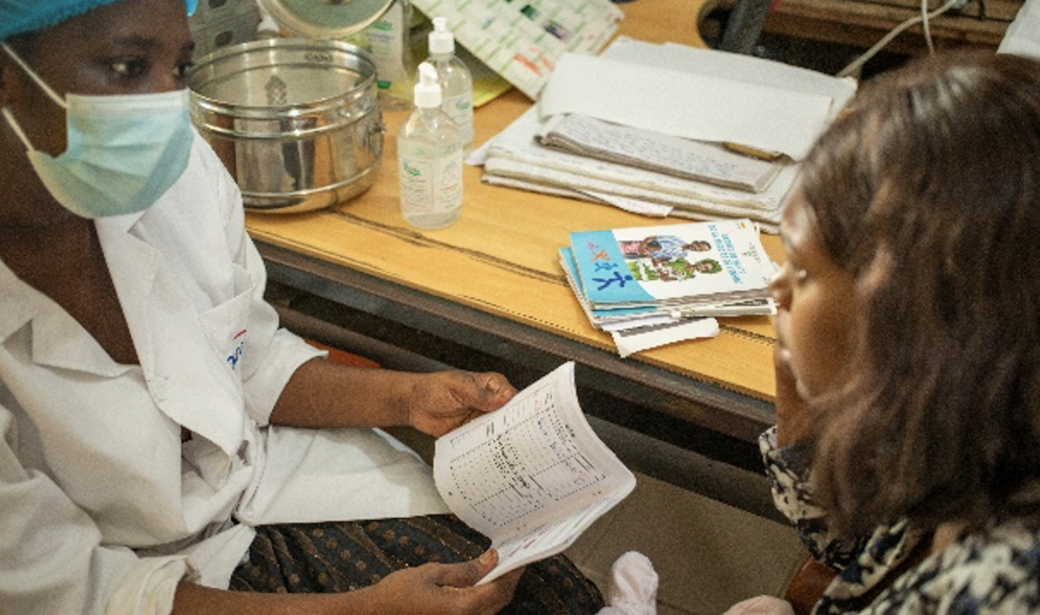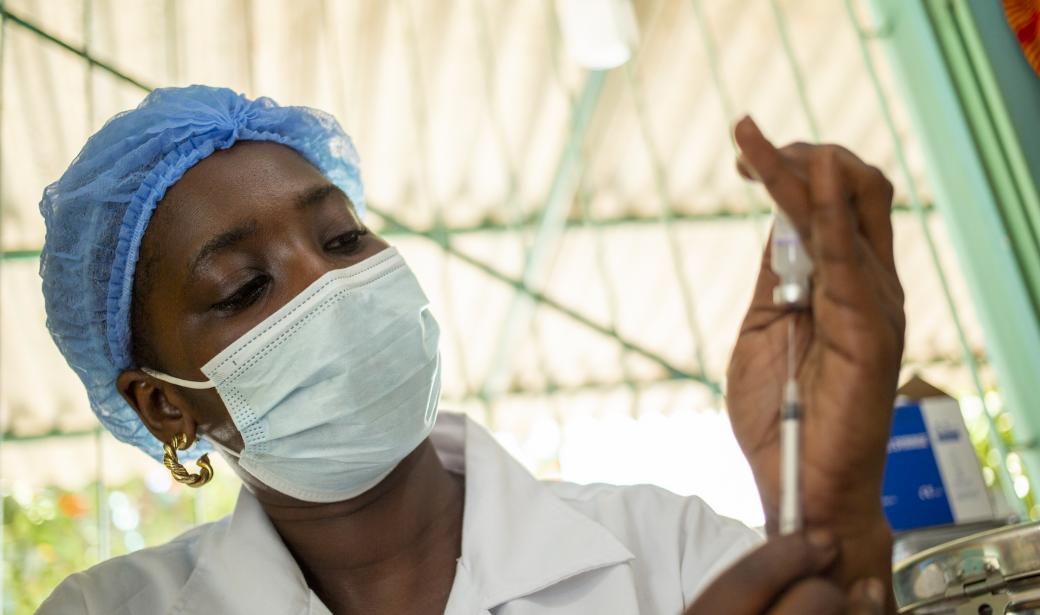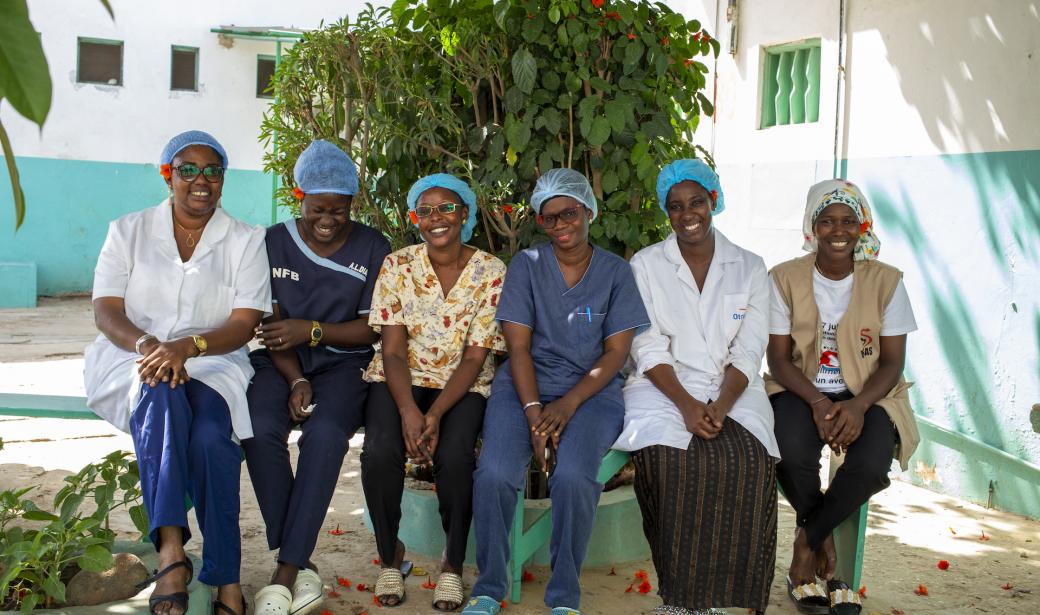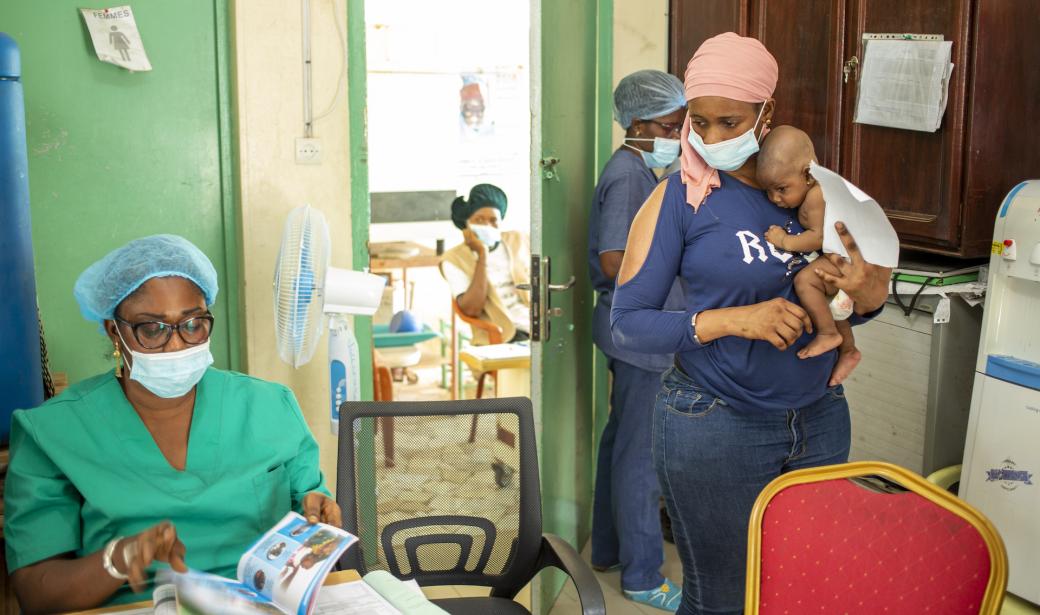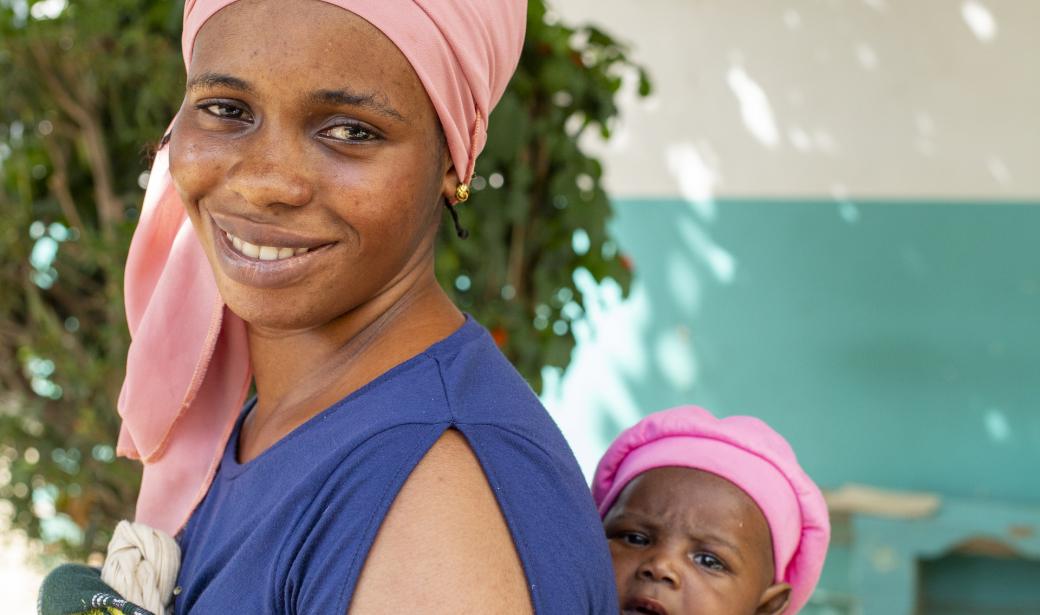Birth by birth, baby by baby, Senegal is determined to end the silent epidemic of chronic hepatitis B by vaccinating every child within the first 24 hours of life followed by three additional doses. Mothers like Amy Kaltoum (above), leaving the Philippe Maguilene Senghor Health Centre after her baby’s second dose, feel assured their children will be protected from one of the country’s major medical burdens.
This strategy relies on the gentle touch and the attentive commitment of trained nurses across Senegal, such as Binnette Thiaw (above) at the Philippe Maguilene Senghor Health Centre in Dakar, to ensure that babies receive the required four doses: at birth and then at age six, eight and 12 weeks. “It is very important to vaccinate babies against hepatitis B when they are born to protect them against this disease,” she says.
In sub-Saharan Africa, around 82 million people are infected with the chronic hepatitis B virus, which is lifelong and can be fatal. It can lead to cirrhosis of the liver or cancer. Around 80 000 people in the continent die every year from the chronic infection (acute forms of the virus clear up easily). In Senegal, 17% of the population carries the chronic virus. “If we get to vaccinate every single child within 24 hours after they are born, followed by at least 2 additional doses, we will eradicate this disease and the related cancers,” says Dr Ousseynou Badiane, Head of the Expanded Programme on Immunization of the Ministry of Health and Social Action.
Most chronic infections are acquired at birth and in childhood, and many people have it for years but never know. Relying on the preventive vaccine and nurses, Senegal is working to prevent the spread of the virus from mother to child at birth. “Screening and treating infected mothers and vaccinating babies are essential to cracking down on chronic hepatitis B,” says Dr Aliou Diallo, a routine immunization specialist with World Health Organization (WHO) in Senegal.
Senegal now leads in newborn vaccinations – 83% of newborns are vaccinated against hepatitis B, either in the delivery room or within 24 hours after being born. Mothers, says nurse Thiaw (above) “are really participative – they all bring their babies to get vaccinated. I am really, really proud of the work I do.”
The nurses in the vaccination unit (above) at the Philippe Maguilene Senghor Health Centre say community engagement is making the difference. With policy guidance and training from WHO, the nurses have strengthened their monitoring of vaccination records and outreach to mothers who have home births. "We are in direct contact with the mothers. We explain to them how vaccination is key to eradicate certain diseases,” says nurse Thiaw, second from right. “We manage to vaccinate 90 to 100 kids every day here.”
"We mothers come to vaccinate our children because we see a great advantage. Given at the moment they are born, the vaccine protects our children from complications that may arise in the future," says Marlène Seck (above), who has brought her daughter to the Philippe Maguilene Senghor Health Centre for her third dose.
Dr Diallo says other countries are inspired by Senegal’s self-financing plan for the three-dose series. Mothers are also inspired to protect other babies. “I advise mothers to vaccinate their children very early to protect them and their health and not to be negligent about it," says Marlène Seck (above) in Dakar. Since WHO recommended hepatitis B birth dose in 2009, only 14 countries in the region now include it as part of their routine vaccination programme. WHO is calling on all countries to introduce the hepatitis B vaccination within the first 24 hours of life.
For Additional Information or to Request Interviews, Please contact:
Collins Boakye-Agyemang
Communications and marketing officer
Tel: + 242 06 520 65 65 (WhatsApp)
Email: boakyeagyemangc [at] who.int (boakyeagyemangc[at]who[dot]int)
Ndéye Coumba DIADHIOU
Chargée de Communication
OMS Tchad
Email : coumbalay [at] gmail.com (coumbalay[at]gmail[dot]com)



